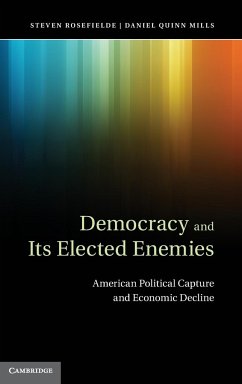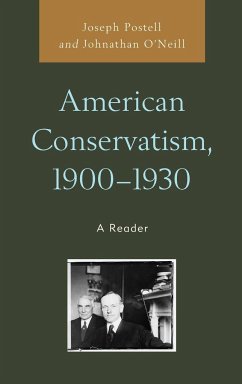
Democracy and Its Enemies
The American Struggle for the Enlightenment
Versandkostenfrei!
Versandfertig in 1-2 Wochen
100,99 €
inkl. MwSt.
Weitere Ausgaben:

PAYBACK Punkte
50 °P sammeln!
America, it is often argued, emerged from the Enlightenment. It follows that the prevailing elements of politics in the United States are echoes of struggles among what is here referred to as the moderate Enlightenment, the conservative Enlightenment, and the radical Enlightenment. These lead to conflicting political doctrines which variously address the fundamental questions of who should rule, and why, and how. The outcome is a confusing mélange of a tri-partite civil war among those who claim the Enlightenment as their own. This is accompanied by a long history of resistance, to the Enligh...
America, it is often argued, emerged from the Enlightenment. It follows that the prevailing elements of politics in the United States are echoes of struggles among what is here referred to as the moderate Enlightenment, the conservative Enlightenment, and the radical Enlightenment. These lead to conflicting political doctrines which variously address the fundamental questions of who should rule, and why, and how. The outcome is a confusing mélange of a tri-partite civil war among those who claim the Enlightenment as their own. This is accompanied by a long history of resistance, to the Enlightenment itself, a phenomenon which leads to deeper concerns. Sometimes referred to as the Counter-Enlightenment, this has been largely expressed by the Romantic contentions of an authoritarian nationalism. Indeed, its most dramatic manifestations have been realized in fascism and Nazism. In this manner, they constitute a step back into the historical mist, comprising a major attack on both reason and empiricism as the foundation of a scientific approach. Out of this combination of limitation and possibility emanate the essential power configurations of the epoch, yielding policies that are often perceived to be "democratic," either as threat or achievement. Accordingly, the book explores the actual substance of the democratic argument. On this basis, it contends that a progressive position necessitates a search for the material foundation of a more egalitarian pluralism as the only rational surrogate for majorities within a nation of enormous size, population, and the complexities of concentration that are beyond the reach of democracy in any literal sense. This work is rooted in one of the major traditions that emerged from the Western world of the late eighteenth century. Thus it is informed by the doctrinal contentions of people like Thomas Paine, Samuel Adams, and Thomas Jefferson. As such, it largely opposes a tradition that flows from the writings of Adam Smith, John Adams, and James Madison, and even more so to that associated with Edmund Burke, Alexander Hamilton, and John Marshall. Its focus is on how these ideas play out in a world wherein a generic fascism is also a major theme always looming














